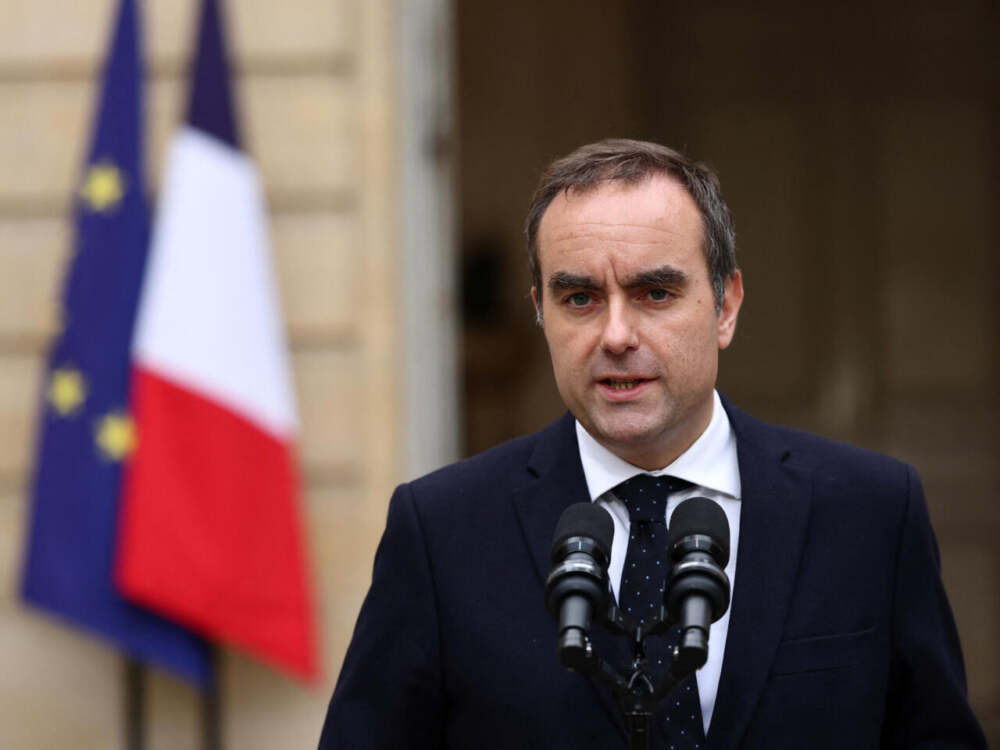France was thrown into fresh political turmoil on Monday as Prime Minister Sébastien Lecornu unexpectedly resigned, just weeks after taking office. His abrupt departure marks one of the shortest premierships in modern French history and underscores the deep divisions that have paralyzed the country’s government since last year’s inconclusive parliamentary elections.
A Government That Collapsed Before It Began
Lecornu, who assumed office in early September, had been tasked with restoring stability after months of political deadlock. But his government barely got off the ground. Hours before his first official cabinet meeting, Lecornu announced he could no longer command a majority in the National Assembly, effectively ending his brief tenure.
In a somber address, the now-former prime minister lamented what he described as a “culture of confrontation over compromise” among France’s political parties. “Every group demanded that others surrender their principles,” he said, accusing rival factions of refusing to cooperate for the sake of national unity.
His resignation comes after opposition parties across the spectrum — from the far left to the far right — signaled they would vote against him in an upcoming confidence motion, ensuring his government’s collapse.
The Roots of France’s Political Paralysis
Lecornu’s downfall is the latest chapter in a wider crisis that began with the 2024 snap parliamentary elections. That vote left President Emmanuel Macron’s centrist alliance without a working majority, while opposition forces on both extremes gained unprecedented power.
Since then, France has cycled through three prime ministers in barely a year. Lecornu’s predecessor, François Bayrou, was forced out after failing to pass his first budget proposal. His government had been accused of pushing unpopular austerity measures and alienating both allies and opponents.
Macron’s decision to appoint Lecornu — a loyal defense minister and long-time ally — was seen by many as an attempt to maintain control rather than rebuild consensus. But the move backfired: critics across the political spectrum dismissed Lecornu’s cabinet as a continuation of Macron’s policies under a new name.
An Unstable Coalition and Mounting Opposition
The failure of Lecornu’s government highlights the increasingly fractured nature of French politics. The National Assembly remains split among three powerful blocs: Macron’s centrist Renaissance alliance, the left-wing New Popular Front, and the far-right National Rally.
With none of these factions able to secure a majority, governance has become a balancing act of fragile alliances, temporary truces, and political brinkmanship. Lecornu’s resignation demonstrates that even the most carefully crafted compromises may no longer be enough to hold the system together.
The left accused Lecornu of offering only symbolic gestures toward social reform, while the right condemned his cabinet as “weak” and “directionless.” The far right, led by Jordan Bardella, demanded the dissolution of parliament and immediate elections, declaring that “France needs clarity, not more confusion.”
Macron Under Pressure
President Macron now faces the most serious challenge of his second term. With Lecornu gone, he must choose between three difficult options: appointing yet another prime minister, dissolving parliament to call fresh elections, or attempting to govern through decree under exceptional powers.
Each option carries risks. Another appointment could simply prolong the stalemate, while new elections might strengthen the far right’s position. Governing by decree would likely provoke public outrage and deepen France’s democratic crisis.
The president’s critics argue that Macron has lost his political touch — and that his insistence on appointing loyalists instead of bridge-builders has alienated potential allies. Even within his own coalition, voices are emerging that call for a change in strategy, warning that the government’s legitimacy is eroding by the day.
Markets and Public Reaction
Financial markets responded swiftly to Lecornu’s resignation. The CAC 40 index dropped as investors braced for weeks of uncertainty, and the euro briefly weakened amid concerns about France’s fiscal direction.
Across the country, citizens expressed frustration at what many see as a government consumed by infighting while economic challenges mount. Inflation remains high, public debt is growing, and unions are preparing for new rounds of strikes over pension reforms and energy prices.
In Paris, one business owner summed up the mood: “Every month we get a new prime minister, but nothing changes for ordinary people.”
The Road Ahead
For now, Macron is expected to hold consultations with party leaders in an attempt to find a candidate who can unite at least part of the fragmented parliament. Names being floated include centrist technocrats, regional leaders, and even members of opposition parties open to a temporary coalition.
However, most observers believe that unless Macron fundamentally changes his approach, France’s political gridlock will persist. The question is no longer just who will lead the government, but whether the Fifth Republic’s current model — built for stability under strong presidential authority — can survive such persistent division.
As France edges closer to yet another round of political maneuvering, one thing is certain: Sébastien Lecornu’s resignation has exposed the depth of a crisis that shows no sign of ending soon.
















Leave a Reply